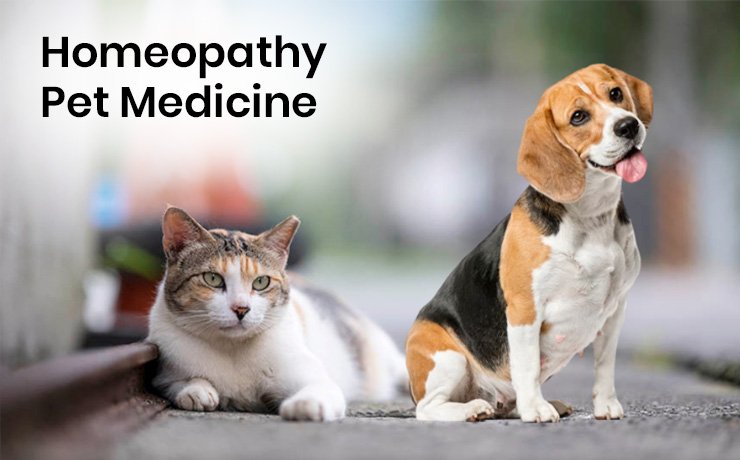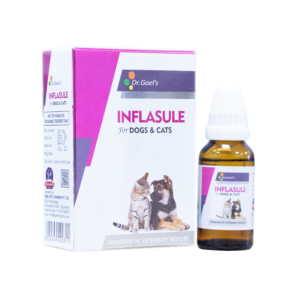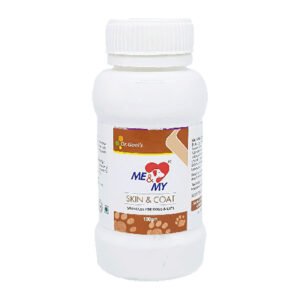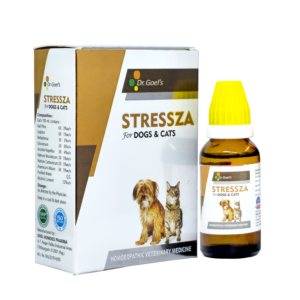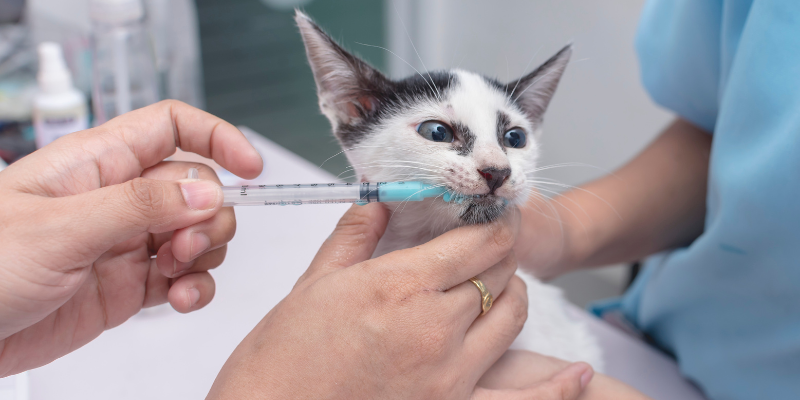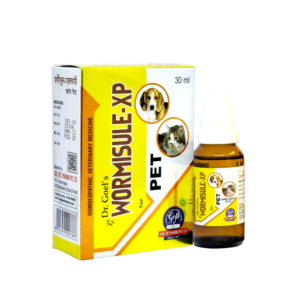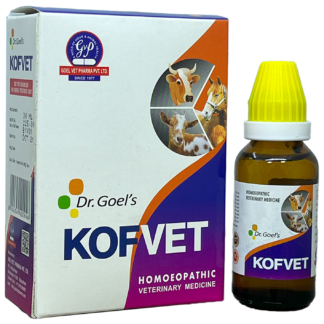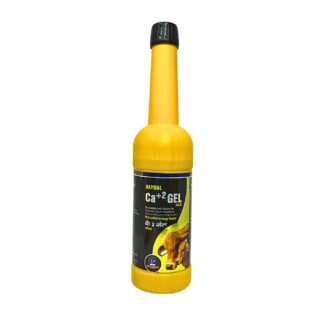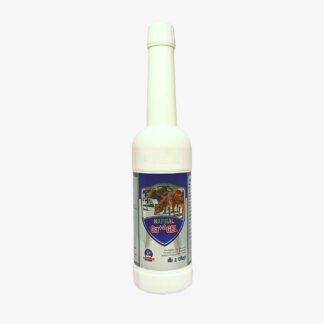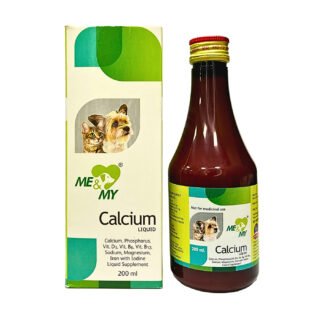Complementary Care for Your Pet: How Homeopathy Can Work Alongside Online Veterinary Consultations

There is no doubt that the pet industry is going through significant changes as more and more online services become the norm. It is no longer a matter of organising a timetable according to the appointments and fighting to avoid traffic jams to get to the vet’s office.
Online consultations on veterinary issues through the internet bring on-the-spot solutions for pet owners without having to go out all as the advice is rendered right at the comfort level of one’s home.
Online veterinary consultation liberates pet owners from the stress and inconvenience of traditional vet visits. It’s a game-changer, offering a seamless solution for a wide range of pet health issues, from digestive complications to problematic skin conditions or sudden behavioural changes.
Whether it’s a quick check-in for non-urgent matters or refilling prescriptions for established conditions, online consultations provide expert advice without the hassle of in-person appointments.
While online consultations excel in diagnosing and treating acute conditions, they may not fully address persistent or recurring issues. This is where complementary therapies like homoeopathy offer a holistic approach to pet health. Homeopathy, a system of medicine that stimulates the body’s natural healing response using highly diluted substances, can be a beacon of hope for improving your pet’s long-term well-being.
This blog goes in-depth and focuses on how homoeopathy and online consultations with veterinary medicine can work together and create a complete healthcare plan for your pet. Alongside this, online veterinary consultation benefits will be discussed, homoeopathy principles for pets will be uncovered and finally, how these two approaches can be in harmony to ensure your pet’s health.
Thus, whether you are an experienced pet parent who has been managing pet healthcare for a long time or a novice pet owner seeking advice on how to manage your pet’s health, this article on how online veterinary consultations and homoeopathy work hand in hand to keep your pet happy and healthy has something for you.
Check Out Our Product : – CONSTIGO for PETS 30ML For Constipation Problems
The Benefits of Online Veterinary Consultations

Online veterinary consultations offer a convenient and cost-effective way to seek professional advice for your pet. Veterinarians can address a variety of concerns through online consultations, including:
- Skin and coat issues: Hair loss, itching, and allergies are common pet problems that can be discussed online.
- Digestive concerns: Diarrhea, vomiting, and constipation can be evaluated by a veterinarian online, especially if they are recent occurrences.
- Behavioural problems: Barking, chewing, and litter box aversion may be addressed through online consultations, especially if the behaviour is new or mild.
- Refills for medications: For established conditions with ongoing prescriptions, online consultations can streamline the process of getting refills.
Understanding Homeopathy for Pets
Homoeopathy is a system of treatment wherein significantly diluted substances help the body stimulate its healing process. Contrary to the conventional medical care a veterinarian performs online, which focuses on diagnosing and treating specific problems, homoeopathy is based on correcting the problem from where it originated in the pet’s body, thus improving the pet’s general health.
Homoeopathic medicines are herbal cures derived from plants, minerals, or animal products. They are processed through serial dilution and potentisation to increase their therapeutic properties. These remedies are supposed to work with the body by giving it tiny doses of stimulation, which is thought to be crucial for maintaining balance.
How Homeopathy Complements Online Veterinary Consultations
While online veterinary consultations have advantages, they may not be the answer for all situations. For chronic or recurring conditions, a complementary approach that addresses the root cause of the problem can be beneficial.
Here’s how homoeopathy can work alongside online veterinary consultations:
- Long-term Management of Chronic Conditions: Online consultations are ideal for diagnosing chronic conditions, but ongoing management might require a more holistic approach. Here, homoeopathy can offer a gentler and potentially long-term solution for conditions like allergies, skin problems, and digestive issues.
- Addressing Behavioral Issues: Online consultations can be helpful for the initial assessment of behavioural problems. However, homoeopathy can assist in managing the underlying emotional causes of anxiety, aggression, or fearfulness in pets.
- Enhancing Overall Well-being: While online veterinary consultations focus on specific health problems, homoeopathy takes a broader approach. It aims to enhance your pet’s overall vitality and resistance to disease, offering a comprehensive solution for their well-being.
- Working Alongside Medications: Homeopathy can often be safely used alongside medications prescribed through online consultations. However, disclosing all medications your pet takes to the homoeopathic practitioner is crucial. This ensures a comprehensive and safe approach to your pet’s health.
Finding a Qualified Homeopath for Your Pet
A qualified professional should administer homoeopathy for pets. Look for a veterinarian who is also certified in homoeopathy. This ensures they understand conventional and alternative therapies and can integrate them effectively for your pet’s best care.
Essential Considerations Before Using Homeopathy
While homoeopathy offers several potential benefits, it’s essential to have realistic expectations:
- Homeopathy is not a substitute for veterinary medicine online consultations. Always consult an online veterinarian for any acute health concerns or emergencies.
- Homoeopathic remedies work best when administered under the guidance of a qualified professional.
- Be patient. Homeopathy takes time to work. Don’t expect immediate results, especially with chronic conditions.
When is a Veterinary Medicine Online Consultation Right for Your Pet?
Veterinary medicine online consultations offer a convenient and cost-effective way to address various pet health concerns, but they aren’t a one-size-fits-all solution. Here are some pointers on when an online consultation might be the best course of action for your furry friend:
- Non-urgent concerns: For recent, non-emergency issues like mild diarrhoea, vomiting, or skin irritation, online consultations can provide valuable guidance. The veterinarian can assess the symptoms, recommend over-the-counter remedies, and offer advice on home care.
- Follow-up appointments: After an initial in-person vet visit for a diagnosed condition, online consultations can help monitor progress, refill prescriptions, and address any minor questions that may arise.
- Behavioural issues: For mild behavioural problems like barking, chewing, or litter box aversion, online consultations can offer initial assessment and training recommendations. However, an in-person visit may be necessary if the behaviour is severe or a potential sign of an underlying medical condition.
- Refills for medications: Are you running low on your pet’s medication for an established condition? Online consultations can streamline the refill process, saving you a trip to the vet’s office.
Understanding the Limitations of Veterinary Medicine Online Consultations

While online veterinary medicine consultations offer numerous benefits, understanding their limitations is essential.
- Physical examination: Online consultations cannot replace the importance of a physical examination. Veterinarians use visual cues, palpation, and other hands-on techniques to diagnose certain conditions.
- Diagnostic tests: Certain diagnostic tests, like x-rays, blood work, or ultrasounds, cannot be performed during an online consultation. If these tests are necessary for diagnosis, an in-person visit will be required.
- Complex medical cases: A thorough in-person evaluation is crucial for complex medical cases. Online consultations might not provide a comprehensive picture of the situation.
- Advanced procedures: Online veterinary medicine consultations cannot facilitate surgical procedures, dental work, or other advanced interventions.
Conclusion
The digital era has had a profound impact on the pet care sector. Online consultations for veterinary medicine provide an opportunity to contact competent people conveniently, thereby eliminating the stress and logistical challenge posed by traditional visits to their houses.
Such virtual consultations are tailored to treat minor concerns, conduct follow-ups on existing conditions, provide repeat prescriptions, and even offer primary evaluations of behavioural issues.
Nevertheless, veterinarians’ diagnoses and consultations via the internet have some disadvantages. A telemedicine device cannot substitute the doctor’s physical presence for complex cases or advanced procedures that require physical examination, diagnostic tests, or personal evaluation.
When it comes to promoting good pet health, a holistic or comprehensive pathway, which focuses on all aspects, is usually required.
Unlike traditional medicine, which uses drugs as a treatment modality, homoeopathy supports pets’ health holistically. Homoeopathy processes illness deeply to its cause to achieve long-lasting health. With homoeopathic medicine, in addition to online veterinary consultations, owners and their pets will have a complete pet health care option.
Consider online consults as the first line of assistance. These allow you to obtain veterinary knowledge on demand and quickly.
Apart from that, hand in hand, homoeopathy is a powerful healing method that can be very useful in maintaining long-term vitality and managing chronic diseases. Combining the two approaches gives you a complete healthcare plan that ensures your pet is smiling and healthy throughout life.
Remember to consult with a qualified vet online or an animal expert who is a homoeopathy specialist before you start any new treatment for your pet. Working with a specialist and a general practitioner means combining the strengths of the two worlds, and this will convince you that your beloved pet is receiving the best care possible.
Must read : – Traveling with Your Pet: How Online Vets Can Help Ensure a Smooth Journey
 Australian Shepherd
Australian Shepherd Beagle
Beagle Belgium Shepherd
Belgium Shepherd Bernese Mountain Dog
Bernese Mountain Dog Border Collie
Border Collie Boxer
Boxer Bulldog
Bulldog Cavalier King Charles Spaniel
Cavalier King Charles Spaniel Chihuahua
Chihuahua Cocker Spaniel
Cocker Spaniel Dachshund
Dachshund Doberman Pinscher
Doberman Pinscher Dogo Argentino
Dogo Argentino French Bulldog
French Bulldog German Shepherd
German Shepherd Golden Retriever
Golden Retriever Great Dane
Great Dane Himalayan Shepherd
Himalayan Shepherd Indie Dogs
Indie Dogs Labrador Retriever
Labrador Retriever Pakistani Bully
Pakistani Bully Pembroke Welsh Corgi
Pembroke Welsh Corgi Pitbull
Pitbull Pomeranian
Pomeranian Poodle
Poodle Pug
Pug Rottweiler
Rottweiler Shih Tzu
Shih Tzu Siberian Husky
Siberian Husky Yorkshire Terrier
Yorkshire Terrier Abyssinian
Abyssinian American Bobtail
American Bobtail American Shorthair
American Shorthair Balinese Cat
Balinese Cat Bengal Cat
Bengal Cat Birman
Birman Bombay Cat
Bombay Cat British Longhair
British Longhair British Shorthair
British Shorthair Burmese Cat
Burmese Cat Devon Rex
Devon Rex Exotic Shorthair
Exotic Shorthair Himalayan Cat
Himalayan Cat Maine Coon
Maine Coon Oriental Shorthair
Oriental Shorthair Persian Cats
Persian Cats Ragdoll
Ragdoll Scottish Fold
Scottish Fold Siamese Cat
Siamese Cat Siberian Cat
Siberian Cat Sphynx Cat
Sphynx Cat



















